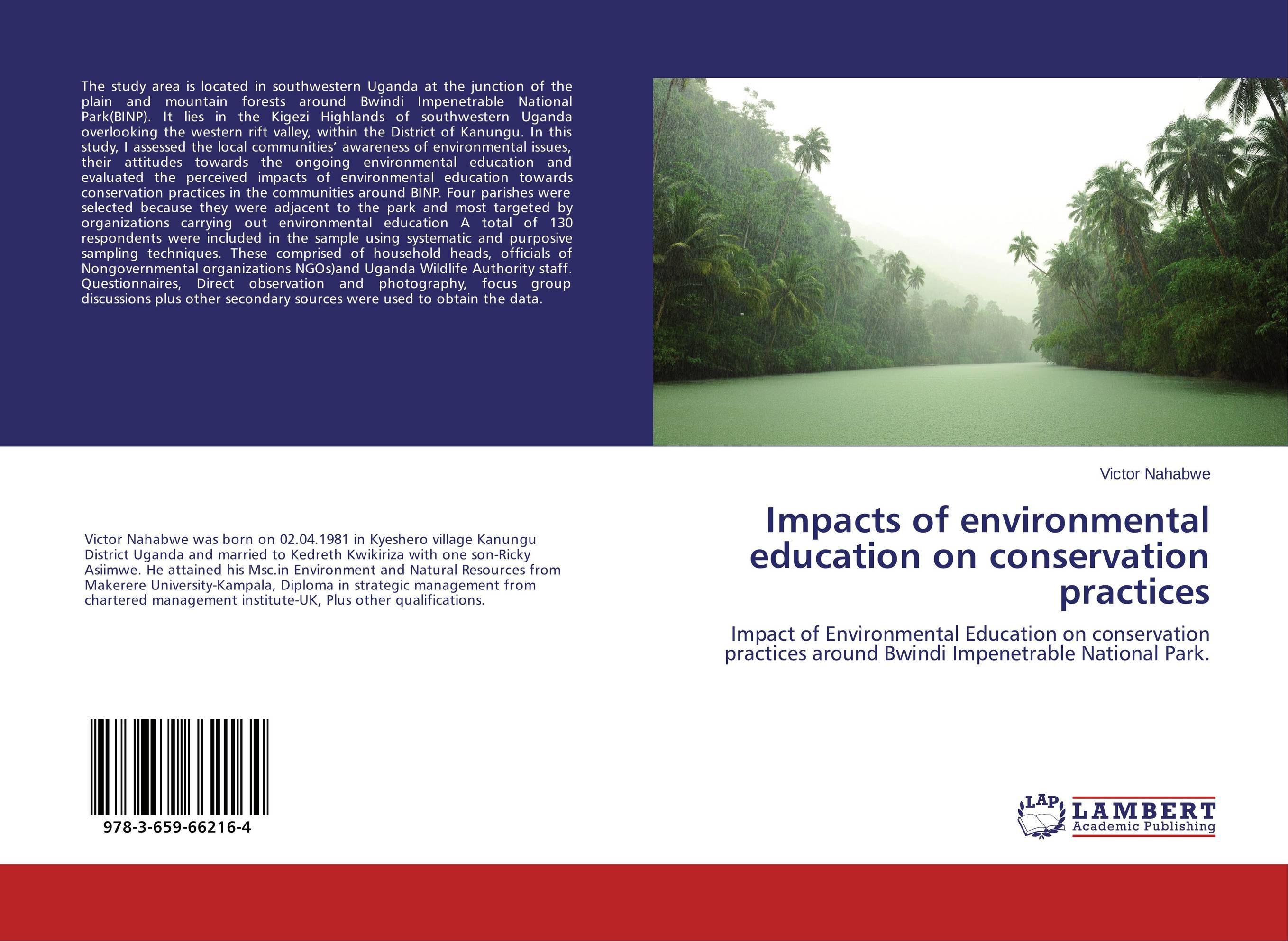| Поиск по каталогу |
|
(строгое соответствие)
|
- Профессиональная
- Научно-популярная
- Художественная
- Публицистика
- Детская
- Искусство
- Хобби, семья, дом
- Спорт
- Путеводители
- Блокноты, тетради, открытки
Impacts of environmental education on conservation practices. Impact of Environmental Education on conservation practices around Bwindi Impenetrable National Park.

В наличии
| Местонахождение: Алматы | Состояние экземпляра: новый |

Бумажная
версия
версия
Автор: Victor Nahabwe
ISBN: 9783659662164
Год издания: 2014
Формат книги: 60×90/16 (145×215 мм)
Количество страниц: 72
Издательство: LAP LAMBERT Academic Publishing
Цена: 23635 тг
Положить в корзину
| Способы доставки в город Алматы * комплектация (срок до отгрузки) не более 2 рабочих дней |
| Самовывоз из города Алматы (пункты самовывоза партнёра CDEK) |
| Курьерская доставка CDEK из города Москва |
| Доставка Почтой России из города Москва |
Аннотация: The study area is located in southwestern Uganda at the junction of the plain and mountain forests around Bwindi Impenetrable National Park(BINP). It lies in the Kigezi Highlands of southwestern Uganda overlooking the western rift valley, within the District of Kanungu. In this study, I assessed the local communities’ awareness of environmental issues, their attitudes towards the ongoing environmental education and evaluated the perceived impacts of environmental education towards conservation practices in the communities around BINP. Four parishes were selected because they were adjacent to the park and most targeted by organizations carrying out environmental education A total of 130 respondents were included in the sample using systematic and purposive sampling techniques. These comprised of household heads, officials of Nongovernmental organizations NGOs)and Uganda Wildlife Authority staff. Questionnaires, Direct observation and photography, focus group discussions plus other secondary sources were used to obtain the data.
Ключевые слова: Conservation Practices, Environmental education



